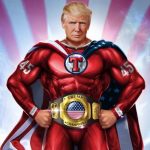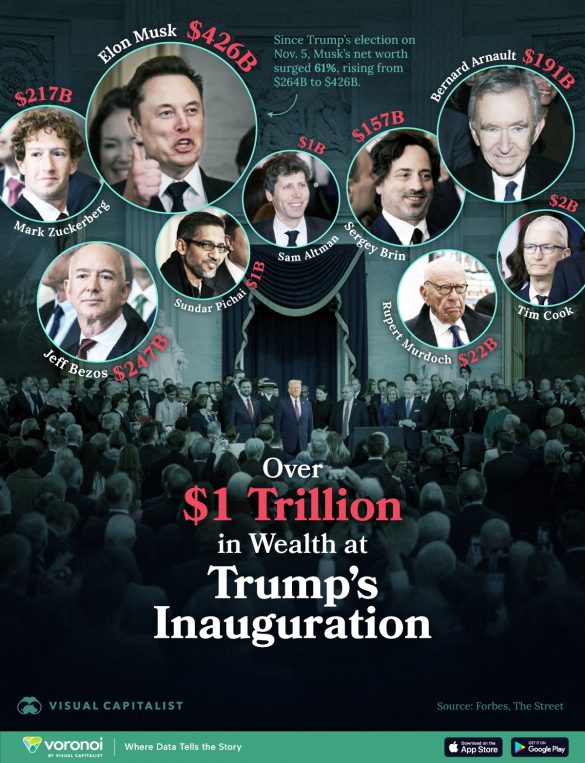The Unchecked Power of Immunity: President Trump’s Move Toward Kleptocracy
 Gerald Ford knew Richard Nixon could be prosecuted for crimes committed as President, so he pardoned Nixon to end the Watergate era. Presidents never enjoyed this broad immunity until six members of the Supreme Court established it July last year in Trump v. United States.
Gerald Ford knew Richard Nixon could be prosecuted for crimes committed as President, so he pardoned Nixon to end the Watergate era. Presidents never enjoyed this broad immunity until six members of the Supreme Court established it July last year in Trump v. United States.
The landmark ruling granted President Donald Trump the most expansive form of immunity in U.S. history. This has made him personally immune to federal prosecution for crimes related to his official actions. In addition, his presidential immunity may be extended through a broad exercise of the pardon power to effectively immunize allies and control, putting them beyond the reach of law as well.
This vacuum of legal accountability is amplified by the reality that President Trump will never face voters again and that he entirely dominates his political party. Short of an action by the very court that granted him historic immunity, no structure restrain his pursuit of self-interest in federal matters.
Freed from Law and Politics, Trump Seeks the Ultra Rich
The new reality was evident at The President’s inauguration. The ultra-wealthy (and their guests) were up on the dais with cabinet nominees (sans guests). Republican governors and party luminaries who normally would be elevated were sent to the overflow room.
Slate’s Alexander Sammon wrote, “The image could not have been sharper: The very richest people in the world — in fact, the very richest men in the history of humanity — are welcome in Trumpworld. Trump, in all his populist bombast, has long made it clear that he would be taking care of his own in his second term as president, and vice versa: The billionaire class, once uneasy with the president, has now embraced him fully.”
 So, free of legal and political constraints, President Trump is emboldened to set policy based on these relationships and how they will increase his wealth over the next four years. Perhaps this self-interest influenced the choice of Trump’s first diplomatic call.
So, free of legal and political constraints, President Trump is emboldened to set policy based on these relationships and how they will increase his wealth over the next four years. Perhaps this self-interest influenced the choice of Trump’s first diplomatic call.
Breaking with tradition, Trump’s first call wasn’t to London in support of the US’s special relationship with Great Britain. Instead, Trump called Riyadh, perhaps recognizing a more personal special relationship in Saudi Arabia. It was that relationship that brought the President’s son a $2 billion investment to anchor his private equity fund. The Trump Organization has regional expansion plans there too. It would hard to overlook personal interests of this magnitude; there’s no reason to believe the President is doing so.
The Rise of Crypto and Conflicts of Interest
One of the most glaring examples of this unchecked power is Trump’s embrace of the cryptocurrency industry. Seizing on the rapidly growing sector, he has licensed his name to several new cryptocurrencies. In the weeks before the inauguration, Trump generated billions of dollars through this venture, which invited the wealthy to line his pockets. This approach is reminiscent of his previous presidency, where his ownership of a hotel blocks away from the White House raised alarms about conflicts of interest. But this time, the stakes are far higher. By launching World Liberty Financial, a crypto venture backed by his name, Trump is asserting financial and political leverage in this volatile market.
Trump’s embrace of crypto policy has also extended to the highest echelons of government. Key appointments of crypto industry figures to top positions, alongside advocacy for a strategic bitcoin reserve, have further inflated the market’s value, allowing Trump to extract both political capital and personal profit from a sector he now controls in part. This reliance on personal enrichment through policy-making represents a dangerous blurring of the lines between public office and private gain, raising serious questions about accountability.
Political Appointments and Business Influence
Perhaps even more concerning is the reach of Trump’s influence outside the crypto sphere. His ability to leverage political power for personal gain has extended to his alliances with prominent business figures like Elon Musk. Musk’s quarter-billion-dollar donation to Trump’s re-election campaign was crucial for its success.
This has resulted in Musk having a more significant presence in the administration than cabinet secretaries or advisors. For months, Trump and Musk have described establishing a Department of Government Efficiency (DOGE), which would give Musk opportunities to scrutinize government operations and potentially advantage his business interests.
Musk’s influence has led to appointing Jared Isaacman—another Musk ally—to oversee NASA. Isaacman’s appointment signals a direct path for Musk’s companies to secure government contracts and influence national space policy. Through these strategic appointments, Trump has not only returned favors to his allies but has consolidated power in ways that ensure his business interests flourish through his active involvement.
The Pardon Power and Rule of Law
Another troubling development is Trump’s ability to wield pardons as a tool of retribution and self-preservation. His mass pardon of over 1,500 individuals convicted of crimes related to the January 6th Capitol insurrection has further degraded the rule of law. By issuing these pardons, Trump demonstrated his disregard for judicial norms and sent a dangerous message that legal consequences can be circumvented through loyalty to him. This normalization of political retribution undermines the very foundation of American justice. It solidifies that the President operates above federal law.
Public Health Communications Silenced
The expertise of the CDC challenged the President’s authority in his first term; his early orders have raised alarm over his interference with the Centers for Disease Control and Prevention (CDC). The Trump administration has actively limited the ability of the CDC to communicate freely with the public, forcing reviews of health reports by political appointees.
This move has resulted in delayed or canceled communications, hampering efforts to respond to public health crises such as the spread of bird flu, which has now spread to multiple animal species—including humans. This shuddering of CDC communications may be modified in light of public reaction or continue exposing Americans to increased health risks.
The Impact on Democracy and Governance
The SCOTUS decision to grant President Trump near-absolute immunity has deepened concerns about the future of American democracy. By leveraging the presidency’s powers for personal and political gain, Trump is redefining federal governance in ways that challenge the very principles of ethical leadership, accountability, and the rule of law. As this unprecedented transformation continues to unfold, the nation must grapple with the long-term consequences of an administration prioritizing personal enrichment and political retribution over the common good.
Americans now face whether, absent legal and electoral accountability,if anything will confine the President’s impulse for personal gain, and whether the electorate, courts or other parts of society will mobilize in response. Less than a week in, nobody knows what comes next.
One week down, 209 more to know this term’s story in full.

 The future of digital experiences will be built by strategists who grasp the full array of emerging business, social, and technical models. Specialties in user experience, branding, application design, and data science are laying the foundation for richer user experiences and business models breakthrough products and revenue based marketing.
The future of digital experiences will be built by strategists who grasp the full array of emerging business, social, and technical models. Specialties in user experience, branding, application design, and data science are laying the foundation for richer user experiences and business models breakthrough products and revenue based marketing.
9 Responses to "The Unchecked Power of Immunity: President Trump’s Move Toward Kleptocracy"
March 21, 2025
God bless America!
March 31, 2025
An interesting perspective on the implications of presidential immunity and its potential impact on governance and accountability.
June 7, 2025
+90 542 780 12 37 – Eskort ?leti?im
June 11, 2025
This piece reads as a sharply critical political analysis, blending factual developments with investigative commentary and strong implications about corruption, self-dealing, and institutional breakdown.
July 13, 2025
It’s a really unsettling thought that the Supreme Court’s decision could create such a wide-reaching shield for presidential actions. It feels like we’re entering uncharted territory regarding accountability. Makes you wonder about the long-term implications for the rule of law. It’s almost like having unlimited power to do whatever you want, like in the game Drift Hunters. Hopefully, there are checks and balances we haven’t fully explored yet that can prevent abuse of this newfound immunity.
August 5, 2025
You are having the details that we need to know about The Unchecked Power of Immunity: President Trump’s Move Toward Kleptocracy, and it is good to find the details at this post. When I used tree service I saw the best solutions that are required to resolve these issues.
August 18, 2025
Really insightful article that highlights the dangers of unchecked power and corruption. Reading this made me think about how even in serious times, small symbols like a Carlos Alcaraz Wimbledon Championships 2025 T-Shirt can remind us of hope, resilience, and the importance of celebrating honest victories.
September 7, 2025
Jumping right into this whirlwind of high-stakes diplomacy and cryptocurrency, the article paints a vivid picture of how personal interests can drive national decisions. I once faced a situation at work where a team leader prioritized side deals over our team’s objectives, much like Slice Master maneuvering to cut the biggest piece for himself. These conflicts of interest always breed mistrust and instability.
November 11, 2025
Test comment for verification